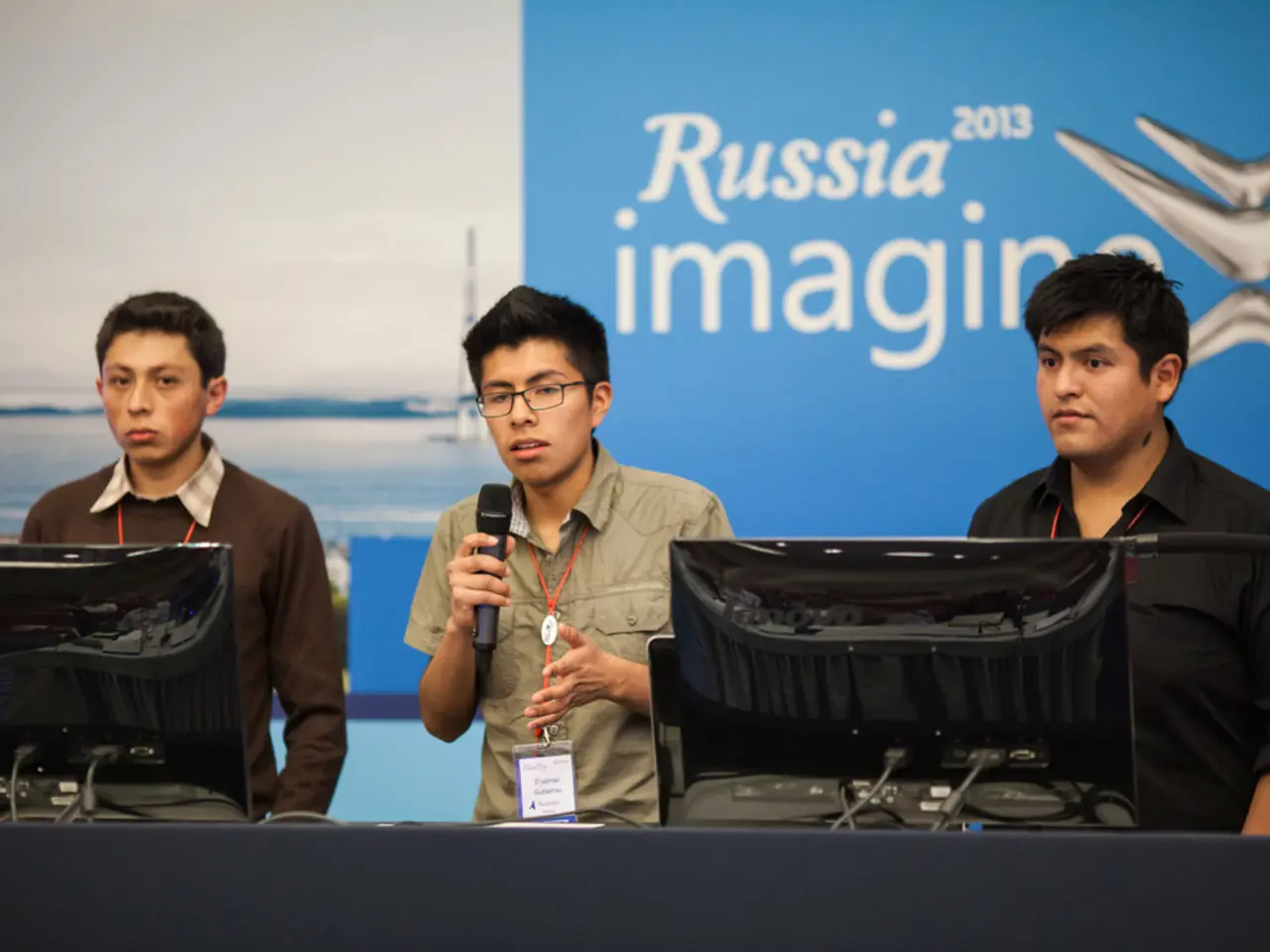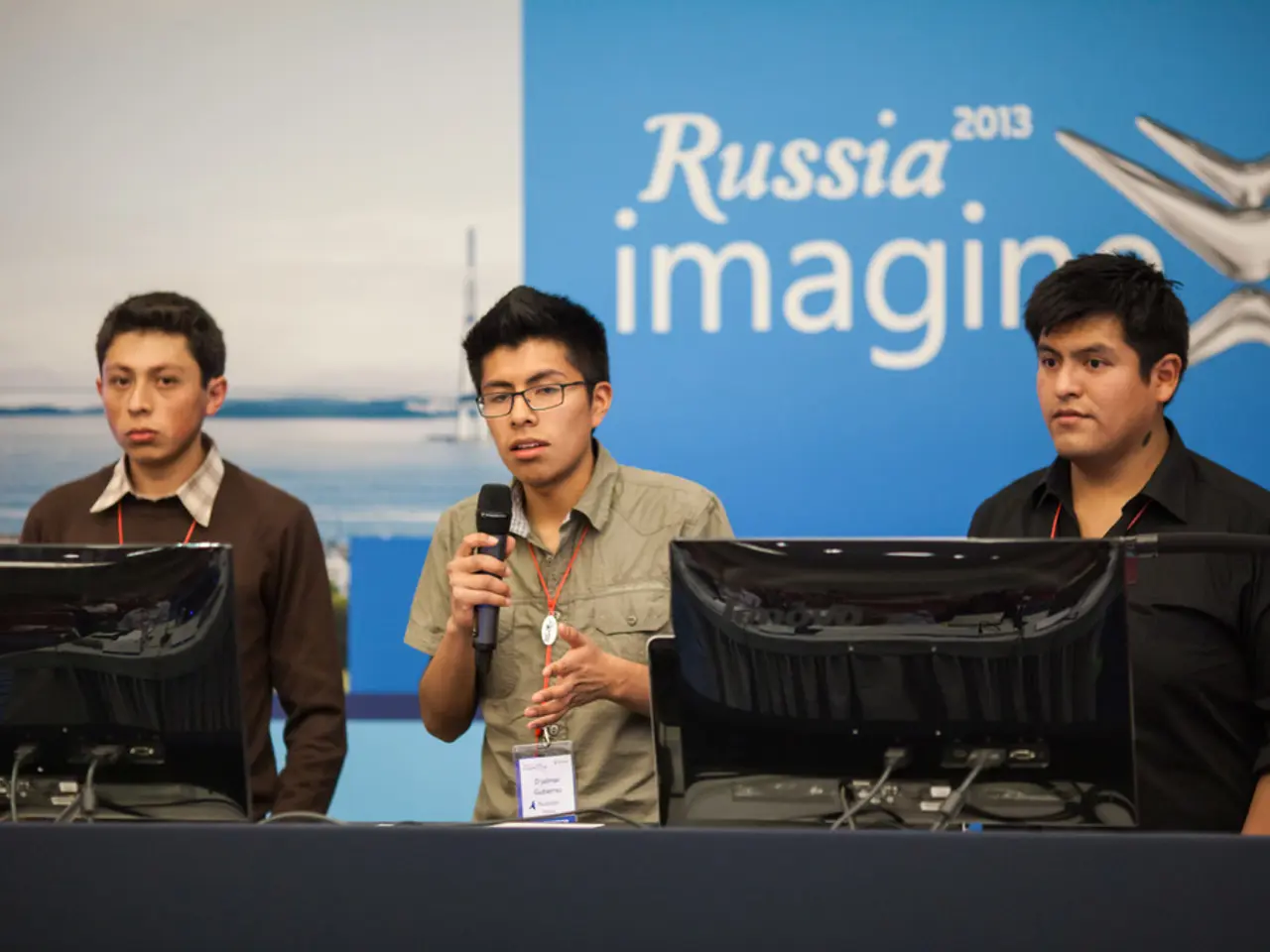Trump and Putin's planned discussion in Alaska
The upcoming meeting between U.S. President Donald Trump and Russian President Vladimir Putin, scheduled to take place in Alaska on August 15, has sparked controversy and concern among Ukraine and European states. The proposed summit, which does not include Ukrainian President Volodymyr Zelensky, has been met with criticism for its potential exclusion of Ukraine and the possibility of harming Ukraine's interests and European security.
Alaska, the northernmost state of the USA, lies only a few kilometers away from Russia at its narrowest point. Historically, the territory belonged to present-day Russia until the mid-19th century when the United States bought the territory.
Ukraine and European states strongly disapprove of the planned Alaska meeting, viewing it as exclusionary. Ukrainian officials liken the summit to the Munich Agreement of 1938, fearing it could lead to abandonment of Ukraine by its allies. They are particularly concerned that the meeting sidelines Kyiv, allowing Putin to try to influence U.S. policy and possibly blame Ukraine for the lack of peace progress.
European countries share similar sentiments, emphasizing that discussing European security without involving Europe or Ukraine is pointless and a concession to Putin. They see the summit as a bilateral meeting that could undermine the cohesive stance of the EU and its allies, delay sanctions on Russia, and send a dangerous signal of marginalizing Ukraine and its sovereignty. Most EU member states remain united in affirming Ukraine’s sovereignty and opposing any forced border changes, though some like Hungary continue non-cooperation.
Trump has downplayed the summit’s importance but suggested a possible subsequent meeting involving Putin and Ukrainian President Zelenskyy. He has threatened “severe consequences” against Russia if the Alaska meeting does not yield progress toward ending the war in Ukraine but did not invite Zelenskyy to the summit itself, which Kyiv views negatively. Trump indicated the summit is a "setting the table" for future talks but remains uncertain about convincingly stopping Putin’s aggression.
Trump mentioned a possible land swap between Ukraine and Russia, but details are vague. The announcement of the meeting between Trump and Putin coincides with the expiration of an ultimatum Trump gave Putin on Friday. The meeting will be a significant forum to discuss progress towards a "just and lasting peace" in Ukraine. A ceasefire is one potential outcome of the meeting, but the question of security guarantees for Ukraine remains open. It remains uncertain whether there will be a meeting between Putin and Zelensky.
Zelensky has warned against decisions without Ukraine's involvement and stated that Ukrainians would not leave their country to the occupiers. A meeting of Western government representatives on the Ukraine war will take place in the UK today.
In summary, the upcoming Trump-Putin meeting on the Ukraine crisis has been met with widespread skepticism and concern. The exclusion of Ukraine and Europe from the meeting has led to criticism, with fears that the meeting could lead to the marginalization of Ukraine and its sovereignty, delay sanctions on Russia, and undermine the cohesive stance of the EU and its allies. The meeting aims to discuss a potential end to the Ukraine war, but the question of security guarantees for Ukraine remains open.
References:
- BBC News
- The Guardian
- CNN
- Reuters
- NPR
Discussion about war-and-conflicts, politics, and general-news revolves around the upcoming Trump-Putin meeting, allegedly excluding Ukraine and Europe, which has raised concerns among these parties. The controversial summit, scheduled in Alaska, is viewed as potentially harming Ukraine's interests and European security.
Ukrainian officials and European countries feel that this meeting could lead to marginalization of Ukraine and undermine the cohesive stance of the EU and its allies, particularly due to the potential exclusion of Ukraine in negotiations regarding European security.







